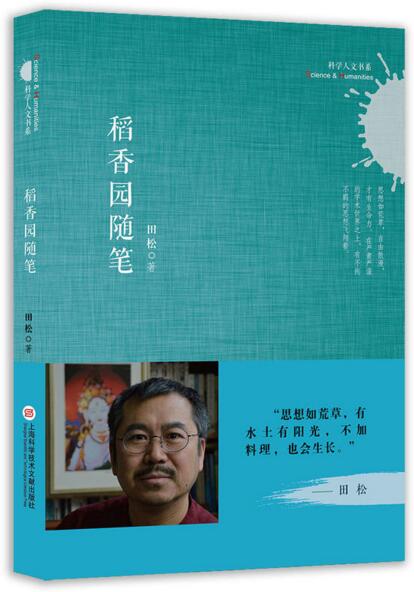Reflections on industrial civilization

Daoxiangyuan Garden Essays
Author: Tian Song
Publisher: Shanghai Scientific and Technological Literature Press
Tian Song’s Daoxiangyuan Garden Essays uses stories, analogies and metaphors for reflection and criticism of the industrial civilization that we are living in today. Every story is composed of his own experiences, what he sees or hears, or reported public events. Although Tian composed stories in various styles, including martial arts stories, readers will find that all these narratives have one subject: reflection on the state of human civilization and individual existence.
Tian has many “golden words,” such as “we are walking plastic,” “we are responsible for the faraway evil,” and “how much money could set us free?” Since Tian’s research later focused on garbage, he was also dubbed the “trash” professor. In August 2010, at the Fourth National Phenomenological Conference on the Philosophy of Science and Technology, he initiated a phenomenological discussion on “garbage” on the bus on the Hulun Buir Steppe. Later I found that the study of garbage is indeed the study of cities and even the study of civilization.
Tian said: “First of all, we must slow down the pace of industrial civilization and stop the violation of traditional culture, so that traditional wisdom can regain discourse power.” Tian argued that in general this is a flashy era, an era of instant success. He pointed out that it is capital that is the ultimate subject scientific technology serves. In the relationship between technology and human beings, in fact, capital ties them together as a bond. He began to realize that “since the industrial revolution, technology has fundamentally failed to meet the needs of people, but rather it meets the needs of capital appreciation ‘from the beginning to the end.” Thus, the human food chain has become a “capital food chain,” like a gluttonous snake. Tian also made new discoveries: Since the industrial revolution, capital and science have made a close alliance.
Tian got his bachelor degree in physics and worked as a tabloid editor. He later got doctorate in both philosophy and the history of science. Tian likes to deal with different ethnic groups and once conducted anthropological investigations in areas where the ethnic Naxi people live. This experience promted Tian to question globalized industrial civilization, and the grand modernization that took place on the land of China. He asked why the value of Chinese civilization for thousands of years must be affirmed by the science introduced in the past few hundred years. Before science arrived, could the value of Chinese civilization not be judged? Why can’t we have our own standards to evaluate our own civilization?
Having read the entire Daoxiangyuan Garden Essays, I found that there are two words or their related meanings that appear frequently: “lose” and “rebuild.” Lose what? Lose the tradition, the land, and the meaning of life. Reconstruction of what? Rebuild tradition, restore nature, and retrieve meanings. He observed with his eyes and heart the people and things in Chinese villages and cities, and writes stories about “loss” using analogies and metaphors, looking forward so that people can be aware of his expectations, recovering and reconstructing the meaning of living.
(edited by SUI JINGJING)
